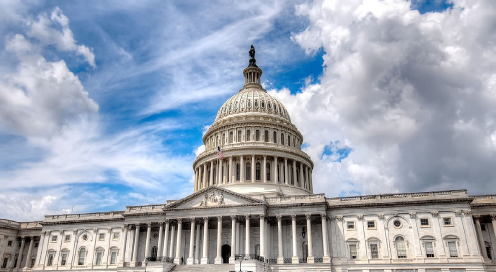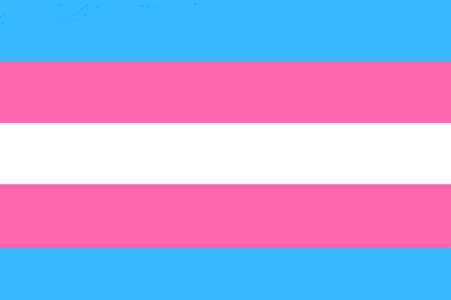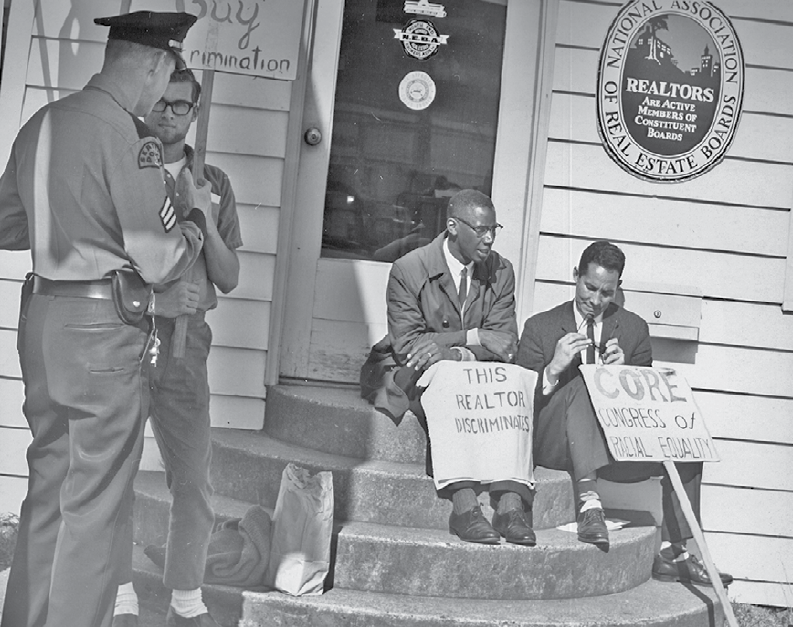NLIHC COVID-19 Policy Priorities
Please note that there might have been additional congressional action between the publication of this article and the date you are reading it. For the latest information, visit: https://bit.ly/2Rnuj4Z
Without action by Congress, 30 to 40 million renters are at risk of being evicted at the end of 2020. While the U.S. Department of Health and Human Services and the Centers for Disease Control and Prevention (CDC) enacted an eviction moratorium, Congress must pass a coronavirus relief bill that includes funding to address the needs of people experiencing homelessness and to keep the lowest-income renters from losing their homes, as renters will still need to pay back-rent at the end of the moratorium.
- The next coronavirus spending package must include the following top priorities, all of which are included in the “Health and Economic Recovery Omnibus Emergency Solutions (HEROES) Act” passed by the House in May:
- An additional $11.5 billion in Emergency Solutions Grants (ESG) to reduce the number of people living in shelters and provide short-term rental assistance and housing stability services
- At least $100 billion in emergency rental assistance and eviction protection to keep the lowest-income renters stably housed
- A national, uniform moratorium on evictions and foreclosures to protect all renters and homeowners from losing their homes
The HEROES Act passed in the House on May 15. Senate Republicans did not release their coronavirus relief proposal, the “HEALS Act,” until July 27. The HEALS Act, and the revised proposal that Senate Republicans released three weeks later, would do nothing to prevent the coming wave of evictions and rise in homelessness. Negotiations on a COVID response package are now stalled.
The CDC issued a national moratorium on September 1 preventing most evictions for nonpayment of rent. The action is long overdue and badly needed, providing essential protection to millions of renters. While an eviction moratorium during the pandemic is essential, it is a half-measure that delays but does not prevent evictions. Congress and the White House must get back to work on negotiations to enact a COVID-19 relief bill that includes NLIHC’s top priorities listed above.
Advocates should contact their members of Congress and urge them to prioritize these resources and protections in a new coronavirus relief package immediately. Find your members of Congress and send them an email at: https://sforce.co/2yeW3CD
See NLIHC’s recommendations to Congress for the next coronavirus relief package at: www.nlihc.org/responding-coronavirus
|
|
|
Federal Funding Update
Congress has until October 1, when the new fiscal year begins, to pass an appropriations package to fund the federal government, or instead pass a continuing resolution (CR) allowing government programs to continue operations for a short period of time at the previous year’s funding levels.
The House of Representatives passed a package of six spending bills for fiscal year (FY) 2021 on August 3 (H.R. 7617), including the Transportation, Housing, and Urban Development (THUD) appropriations bill. The THUD bill provides significant increases in funding for housing programs that serve low-income people and communities, including an additional $4.6 billion for HUD programs above the previous year’s funding.
The bill also contains amendments to block implementation of harmful HUD proposals, including the agency’s anti-transgender changes to the Equal Access Rule, its changes to the anti-discrimination Disparate Impact Rule of 2013, its rollback of the Affirmatively Furthering Fair Housing (AFFH) Rule of 2015, and its proposed rule to force mixed-status immigrant families to separate or face eviction from HUD-assisted housing
Despite progress in the House, the Senate has yet to pass a single spending bill and is unlikely to do so before the November election. Congress will likely pass a CR by September 30 to avoid a government shutdown and may delay passing an appropriations bill for FY21 until December 2020 or in the new year. Long-term CRs can cause issues for HUD and USDA rental assistance programs, which require increased funding every year to keep up with increased housing costs. In the event of a long-term CR, NLIHC will work with advocates and our partners in Congress to ensure HUD and USDA affordable housing programs receive the funding they need to ensure every tenant will remain safely, stably, affordably and accessibly housed.

The Housing Saves Lives Campaign and HUD’s Anti-Transgender Changes to the Equal Access Rule
In another attack by the Trump Administration against the LGBTQ community, HUD published its proposed anti-transgender changes o the Equal Access Rule in the Federal Register on July 23. HUD’s proposed rule change would weaken the protections for transgender individuals set in the Equal Access Rule of 2016. HUD’s rule would limit the ability of transgender people experiencing homelessness to secure emergency shelter and emergency shelter services by allowing shelter providers to deny admission or access to services consistent with an individual’s gender identity.
The current Equal Access Rule explicitly prohibits discrimination in HUD-funded housing and programs based on sexual orientation and gender identity. It was updated in 2016 to establish vital protections for LGBTQ individuals and allowed individuals to pursue emergency sheltering services in accordance with their gender identity.
One day after HUD Secretary Carson testified before Congress and said that he was not anticipating any changes to protections for LGBTQ people and that HUD would not make any changes to the Equal Access Rule, HUD announced on May 22 its proposal to gut the rule and remove protections for LGBTQ people.
HUD’s Proposed Rule
Features of the harmful proposed changes include:
- Revisions to the definition of gender identity to mean actual or perceived gender-related characteristics (deleting the current rule’s “the gender by which a person identifies, regardless of the sex assigned to that person at birth and regardless of the person’s perceived gender identity).
- Allowing shelter providers to place and accommodate individuals on the basis of their policies for determining someone’s sex.
- Allowing shelter providers to deny admission using a range of factors, including the provider’s “good faith belief” that an individual is not of the sex that the shelter serves (e.g., a women’s shelter), an individual’s sex as reflected in official government documents, or the gender with which a person identifies.
- Allowing shelter providers to use physical characteristics as “reasonable considerations” to determine a person’s biological sex. This may include factors such as height, presence of facial hair, the presence of an Adam’s apple, and other physical characteristics that HUD claims “when considered together, are indicative of a person’s biological sex.”
 Despite admitting that data is lacking, HUD bases its justification on anecdotal evidence and dangerous stereotypes, exaggerated “religious freedom” assertions, and unfounded regulatory burdens on shelters. Amid a global pandemic and racial injustices plaguing our country, it is unconscionable for the administration to dedicate resources and time to dismantling anti-discrimination laws and policies.
Despite admitting that data is lacking, HUD bases its justification on anecdotal evidence and dangerous stereotypes, exaggerated “religious freedom” assertions, and unfounded regulatory burdens on shelters. Amid a global pandemic and racial injustices plaguing our country, it is unconscionable for the administration to dedicate resources and time to dismantling anti-discrimination laws and policies.
Transgender individuals already face steep barriers in accessing shelter. Transgender individuals are far more likely than the general population to experience homelessness. According to the 2015 U.S. Transgender Survey, nearly 1/3 of transgender people experience homelessness at some point in their lives. That number increases to 50% for transgender people of color. The same survey found that 70% of respondents reported mistreatment in shelters due to their gender identity, and 44% of respondents had left a shelter due to poor or unsafe conditions, despite not having alternative shelter. One in 10 respondents who had stayed in a shelter a year prior were kicked out once the shelter staff found out that they were transgender. HUD’s anti-transgender rule will only exacerbate the prevalence of these issues.
Housing Saves Lives Campaign
NLIHC, True Colors United, the National LGBTQ Task Force, National Housing Law Project, and over 50 local and national organizations have launched the Housing Saves Lives campaign to encourage advocates to submit public comments opposing HUD’s anti-transgender rule change.
From August 31 to September 4, the Housing Saves Lives campaign hosted a Week of Action to encourage advocates to submit their comments opposing HUD’s proposed anti-transgender changes to the Equal Access Rule. Thousands of public comments were submitted telling HUD that denying transgender people access to federally funded shelters is cruel and unacceptable. Members of Congress also voiced significant opposition to the rule. Over 140 Members of Congress signed on to a bicameral letter submitted as a public comment urging HUD to immediately rescind its anti-transgender proposal.
The deadline for advocates to submit comments opposing this HUD’s proposed rule is September 22. For more resources, a template to help draft your comment, and a direct portal to submit your comment, visit: HousingSavesLives.org
Trump Administration Repeals Affirmatively Furthering Fair Housing Rule
The Trump Administration repealed the 2015 regulation implementing the Fair Housing Act’s obligation to “affirmatively further fair housing” (AFFH). Forgoing the usual 60-day public comment period, HUD published a final rule that guts AFFH, effective September 8.
 The Fair Housing Act of 1968 not only made it against federal law to discriminate against various groups of people in housing. It also required meaningful actions on the part of local and state governments to undo decades of federal, state, and local discriminatory policies and practices that resulted in today’s segregated communities.
The Fair Housing Act of 1968 not only made it against federal law to discriminate against various groups of people in housing. It also required meaningful actions on the part of local and state governments to undo decades of federal, state, and local discriminatory policies and practices that resulted in today’s segregated communities.
The 2015 rule represented the first significant AFFH regulation since the Fair Housing Act of 1968. It required HUD, as well as public housing agencies (PHAs), states, counties, and cities to affirmatively further fair housing if they receive federal funds. HUD Secretary Ben Carson suspended the rule in 2018; now the 2015 rule has been completely overturned.
The final Trump/Carson rule requires a PHA, city, county, or state receiving HUD funds only to “certify” (pledge in writing) that they are affirmatively furthering fair housing. The new rule considers a certification adequate if the program participant takes any action related to promoting one or more characteristics of fair housing.
The final rule redefines “fair housing” to mean housing that is affordable, safe, decent, free of unlawful discrimination, and physically accessible. The rule also redefines “affirmatively further” to mean to take any action related to promoting any of those fair housing characteristics (affordable, safe, decent, free of unlawful discrimination, and physically accessible). For example, to certify that it is affirmatively furthering fair housing, all a city might have to do is donate one building in a disinvested neighborhood that the city obtained for free because the owner abandoned it, provide the building to a developer for $1 to rehabilitate it, and rent to low-income households, some of whom might use Housing Choice Vouchers to make it affordable.
NLIHC and other civil rights and housing organizations issued a media statement on July 23 after HUD announced its intention to publish the rule (called “Preserving Community and Housing Choice”). The statement condemned the administration’s action and the president’s use of incendiary racial rhetoric about the move.

